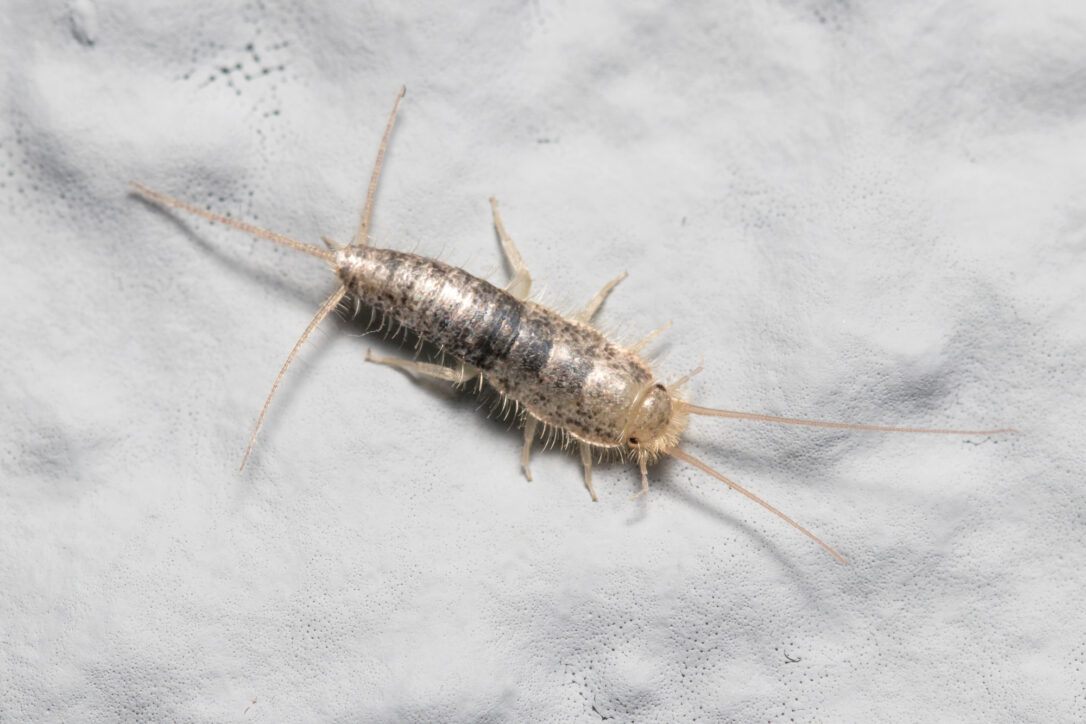Table of Contents
Silverfish are small, slippery, and sneaky insects that can cause frustration and damage in any home. These nocturnal creatures are known for their love of sugar and carbohydrates, and their presence can be a sure sign of moisture issues.
For those looking to say goodbye to silverfish for good, it is important to take a multi-faceted approach that includes prevention, remedies, and potentially, consulting with a pest management professional.
Prevention is key when it comes to silverfish infestations. Proper storage of dried foods in airtight containers, regular vacuuming of carpets and clearing of clutter, and fixing any moisture issues in the home are all important steps in keeping these pests at bay.
For those who have already encountered silverfish in their home, there are a variety of remedies that can be used, including natural options such as cedar shavings and cinnamon. However, for more severe infestations, it may be necessary to consult with a pest management professional who can provide specialized knowledge and approved insecticides to effectively control these pesky insects.
By taking a comprehensive approach, it is possible to say goodbye to silverfish for good and enjoy a pest-free home.
Key Takeaways
- Silverfish are small, nocturnal insects that can become pests in the home, damaging belongings and prefer a diet filled with sugar and carbohydrates.
- They are attracted to food sources, warm places to hide, and safe corners where they can lay their eggs, and prefer to live in dark, moist places where dampness is common.
- Prevention methods include fixing damp problems, hoovering carpets regularly, clearing away clutter, and storing dried foods in airtight containers. Home remedies to get rid of silverfish include cedar shavings, cinnamon, citrus fruits, cucumber peels, cloves, and salt.
- For substantial silverfish infestations, it’s best to consult an expert, who can use approved insecticides and specialist knowledge to control them.
Facts About Silverfish
Not only are silverfish small, nocturnal insects that can become pests in the home but they are also known for damaging belongings and prefer a diet filled with sugar and carbohydrates. These pests are harmless to humans but can destroy books, old papers, wallpaper, carpets, and clothes with their droppings.
Silverfish are attracted to food sources, warm places to hide, and safe corners where they can lay their eggs. They prefer to live in dark, moist places where dampness is common, such as attics, basements, garages, and kitchens. Signs of infestation include yellow stains on clothing, small holes and droppings on old paper and wallpaper, and burrowing in unsealed dried food packets.
However, the presence of a few silverfish is not unusual in a home and is no cause for concern.
Earwigs, centipedes, and spiders are natural predators of silverfish. These predators feed on silverfish and help to control their population. Silverfish have shared spaces with humans for thousands of years and play an important role in the ecosystem.
However, if a silverfish infestation is substantial, an expert should be consulted. Pest management professionals use approved insecticides and specialist knowledge to control silverfish. It is important to remember that the presence of silverfish is more of an indicator of moisture in the home and to fix damp problems to prevent their return.
Prevention And Remedies
Effective prevention and treatment methods for silverfish infestations include fixing dampness problems, regular carpet cleaning, decluttering, and storing dried foods in airtight containers. These measures help reduce the availability of the silverfish’s preferred food sources, as well as eliminate potential hiding places and breeding grounds. Additionally, natural remedies such as cedar shavings, cinnamon, citrus fruits, cucumber peels, cloves, and salt can be used to repel silverfish. These substances are known to have a strong scent that silverfish dislike, making them effective alternatives to harsh chemicals.
It is important to note that silverfish play an important role in the ecosystem as they help break down dead plant matter and contribute to soil health. Therefore, it is recommended to use natural remedies and pest management methods that do not harm these creatures unnecessarily. By utilizing effective prevention and treatment methods that are environmentally friendly, we can say goodbye to silverfish for good, while also preserving the balance of our ecosystem.
Consulting a Pest Expert
Consulting a pest management professional is a recommended course of action for substantial silverfish infestations, as they possess the specialist knowledge and approved insecticides necessary to control the situation. These professionals can identify the severity of the infestation and provide recommendations on how to prevent future occurrences.
It is worth noting that silverfish have coexisted with humans for thousands of years, and while they can be a nuisance, they play an important role in the ecosystem.
While natural remedies such as cedar shavings, cinnamon, and citrus fruits can be effective in deterring silverfish, they may not eliminate the problem entirely. Additionally, the benefits of natural remedies may be limited to a small-scale infestation.
Using harsh chemicals such as boric acid may be more effective in controlling silverfish, but there are potential risks associated with its use. Consulting a pest expert can provide a comprehensive solution that considers the safety of the home and its occupants.
Frequently Asked Questions
Are silverfish dangerous to pets?
Silverfish are not known to pose a direct threat to pet safety. However, their droppings can cause respiratory problems in pets with allergies. Prevention methods such as regularly cleaning and keeping food sources sealed can reduce the risk of infestations.
Can silverfish survive in cold temperatures?
As cold-blooded insects, silverfish are able to survive in a range of temperatures, including cold ones. Preventing infestations can be achieved through effective DIY remedies such as using boric acid and storing food in airtight containers.
Do silverfish have any natural predators besides earwigs, centipedes, and spiders?
Silverfish have a range of natural predators, including earwigs, centipedes, and spiders. Predator interactions can have an ecological impact, as silverfish play an important role in the ecosystem and are often used as a food source.
How do silverfish reproduce and how quickly do they multiply?
Silverfish reproduce quickly, with females laying up to 100 eggs in their lifetime. The eggs take around 2-8 weeks to hatch, and the nymphs take around 3-4 months to mature. Prevention methods include fixing dampness problems and storing dried foods in airtight containers.
Can silverfish cause allergic reactions or respiratory problems in humans?
Silverfish do not cause allergic reactions or respiratory problems in humans. Prevention and identifying infestations are key to controlling their presence. Natural remedies and professional treatment options are available for managing infestations.
You may also enjoy reading this article
Was This Article Helpful?
- Please provide feedback and comments to help us improve our content.
- Share your experiences and any additional tips you have for dealing with pests.
Share this Post



